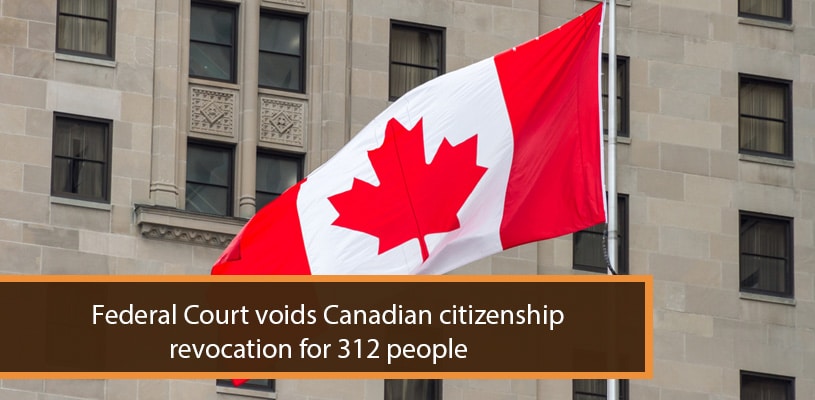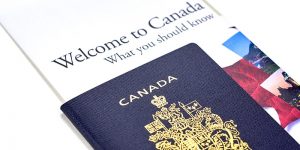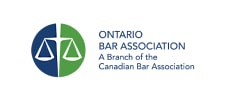The Federal Court has nullified government attempts to strip Canadian citizenship from more than 300 people after an earlier judgment struck down key provisions of the Citizenship Act introduced by the former Conservative government under Stephen Harper.
The earlier ruling, in May, declared those provisions inoperative because they were an expedited process that deprived individuals of the right to an oral hearing and did not take into account humanitarian and compassionate considerations.
As a result, in a decision on Monday, Justice Russel Zinn voided the citizenship revocation of 312 individuals who had turned to the court after they were targeted in a sweep against people who had obtained their Canadian nationality through fraud.
Related: Senate passes bill that repeals many Conservative citizenship changes
Opinion: Canadian citizenship must be a constitutional right
Another 14 similar court requests, which had not been filed in a timely manner, can apply for a deadline extension, Justice Zinn ruled.
“It’s another judicial loss for the policies of the previous government,” Montreal lawyer Vincent Valaï, who represented some of the people in the case, said in an interview.
He noted that the Conservative government liked to say that obtaining Canadian citizenship is a privilege, not a right. However, the ruling in May said that once acquired, citizenship is a right.
“And because it is a right, you have to respect procedure fairness before revoking citizenship. That means the right to a hearing before an impartial judge,” Mr. Valaï said.
Another lawyer involved in the case, Matthew Jeffery, called the provisions in the law a “deeply flawed process.”
The government could start the revocation process against those people all over again but it would first have to rewrite the law to conform with the court rulings, Mr. Jeffery said.
The number of revocation cases began ballooning when Jason Kenney, who was immigration and citizenship minister in the Harper government, announced in 2012 that his department would cancel the citizenship of more than 3,000 people, in a crackdown against those who had faked the amount of time they have spent in Canada.
In February, 2014, the Harper government amended the Citizenship Act to fast-track the revocation process in what it called “non-complex” cases. It meant eliminating the right to a hearing for individuals when their citizenship had been obtained by fraud.
Several of the cases involved clients of Nizar Zakka, a Montreal immigration consultant who created a system to hide the fact that the clients were not residing in Canada for the required two-year minimum within a five-year span.
Faced with hundreds of applicants challenging their citizenship revocation, the Federal Court started with a review of eight lead cases while the other cases were held in suspension.
Last May, Justice Jocelyne Gagné ruled on the eight lead cases, striking down the new provisions for an expedited revocation process.
“They deprive the applicants of the right to a fair hearing in accordance with the principles of fundamental justice,” Justice Gagné wrote.
In one case that she highlighted, the government tried to revoke the citizenship of Fiji-born Thomas Gucake, who had come to Canada as a child and later served three tours in Afghanistan with the Princess Patricia’s Canadian Light Infantry regiment.
In 2015, Mr. Gucake received a notice of citizenship revocation because his father had failed to disclose a minor criminal conviction in Australia.
The current government has since amended the Act so that, by next year, the Federal Court would be the decision-maker in citizenship revocation cases.























